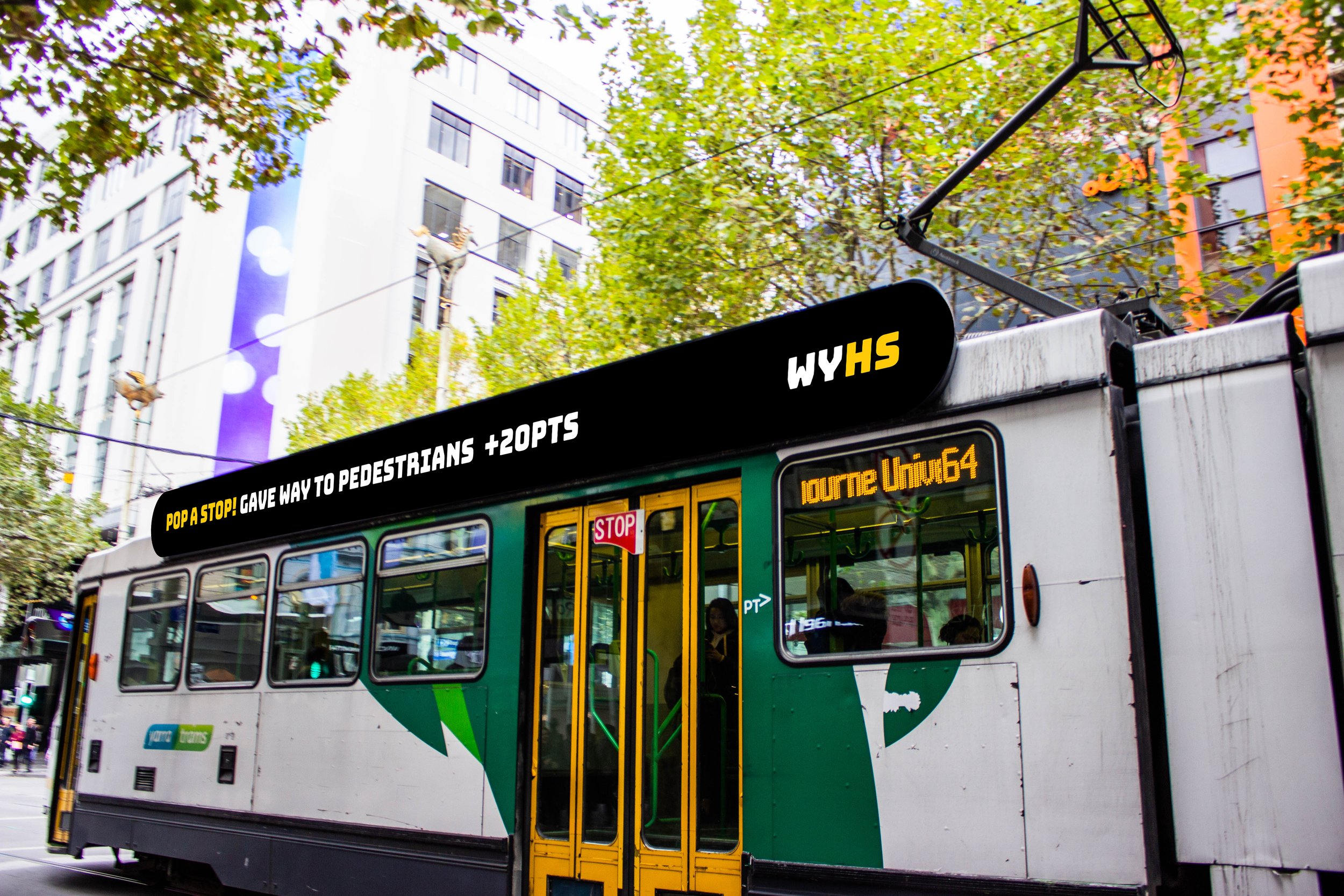
The Problem
Over 50% of drivers in Australia think cyclists are NOT completely human.
The Insight
The dehumanization of cyclists significantly correlates with the on-road aggression of drivers.
The Brief
To create a sense of shared responsibility on Australian roads for the safety of all road users.
The Focus
Encouraging good behaviours above and beyond the law to reduce road accidents in Australia.
What’s your high score?
Scope
Research
Concept
Art direction
Guerilla marketing
Additional credits
Emily Wookey
Rhodi Saykao
In partnership with
Re:Act by Hard Edge
TAC
Australia Post
We surveyed 150 people and this is what people said about breaking road rules
51% of people feel like they are competing with other drivers on the road.
“It’s not okay to use my phone while driving but I do anyway.”
— Anonymous
64% of people named a road rule they thought was acceptable to break.
“Road rules are NEVER ok to break but the speed limit might be.”
— Anonymous
The campaign strategy referenced three key attributes.
Teams and Oxytocin
When people are isolated in their vehicles they think as individuals and dehumanise the people around them, causing them to make selfish choices on the roads. Our studies showed that if we can get people to view our roads as a team sport rather than an individual race, the team mentality will produce the hormone oxytocin which is known to increase empathy thus improving consideration of others on the roads.
Millennials and Gaming
With an 18–25 year old target audience, our research showed that 48% regularly engage with gaming content. Our campaign uses guerilla marketing to capitalise on the Game Transfer Phenomenon, similar to the Tetris Effect, where consumers regularly exposed to a game begin to experience the world around them through the lens of the game. Regular exposure to the campaign will allow the audience to live the game in real life.
Reinforcement and Gratification
Our research showed that the threat of a fine wasn’t enough to stop our audience from breaking the road rules, so we flipped the narrative, focusing on positive reinforcement for good road behaviour instead. We found that millennials with shorter attention spans required instant gratification for positive behaviour, therefore every win in the game is immediately acknowledged by sound effects, affirmative colours, and an increase in points for the team to reinforce the good behaviour.
The campaign concept.




